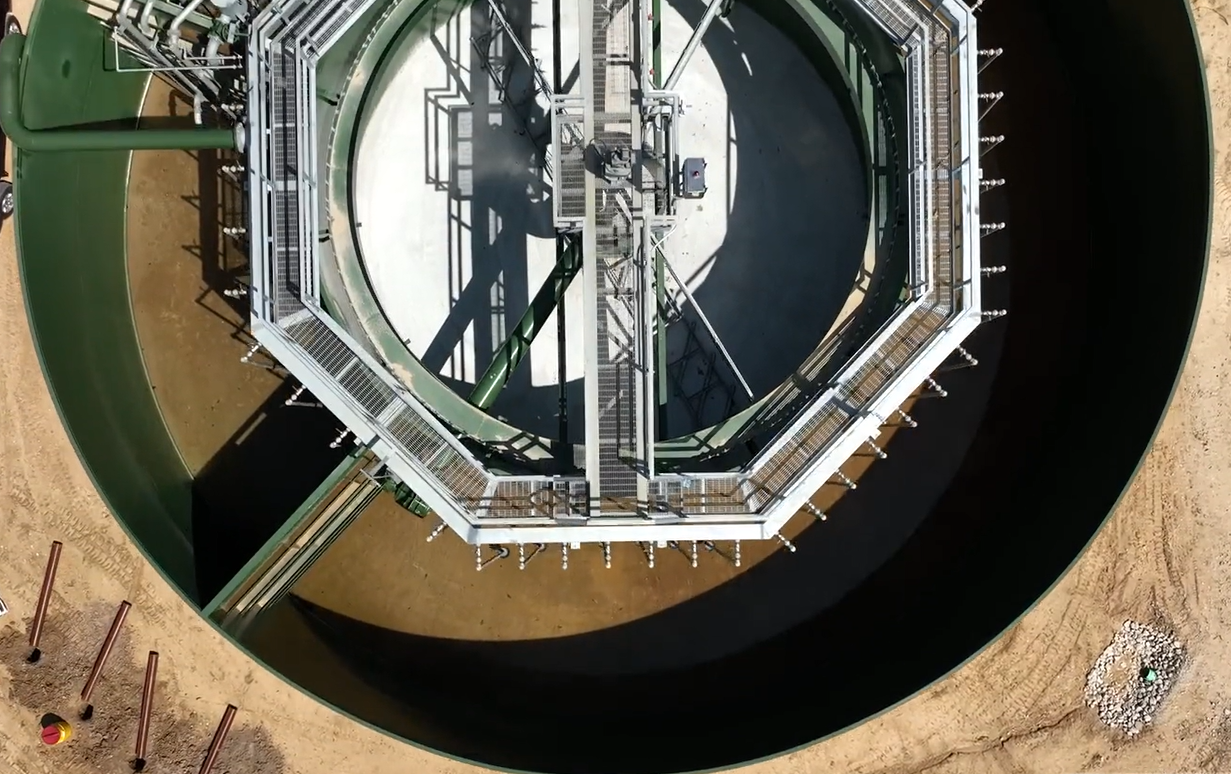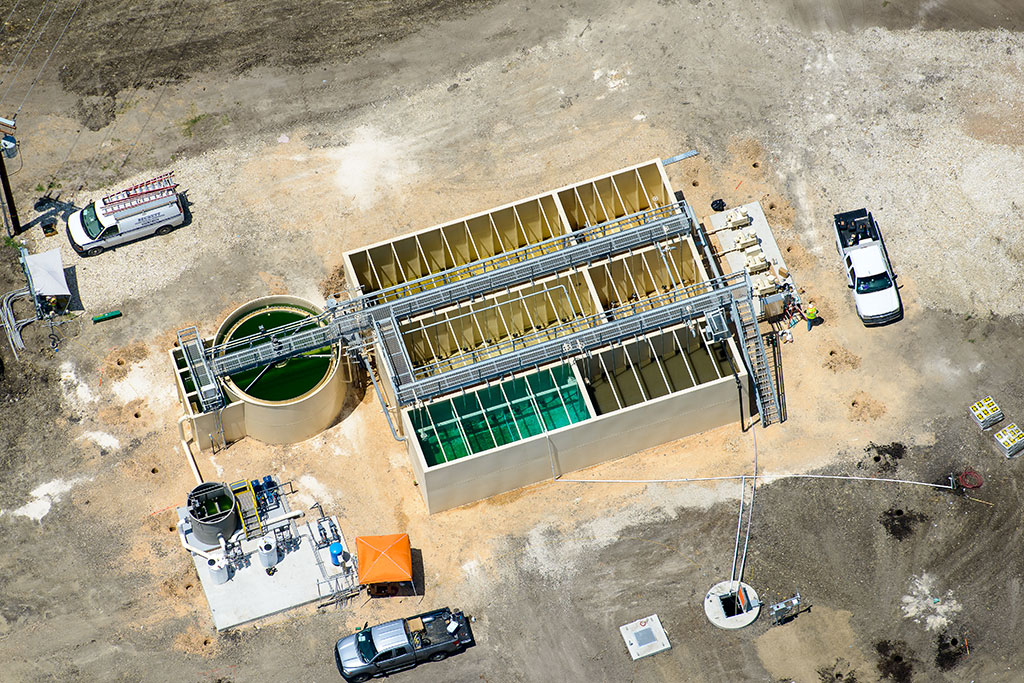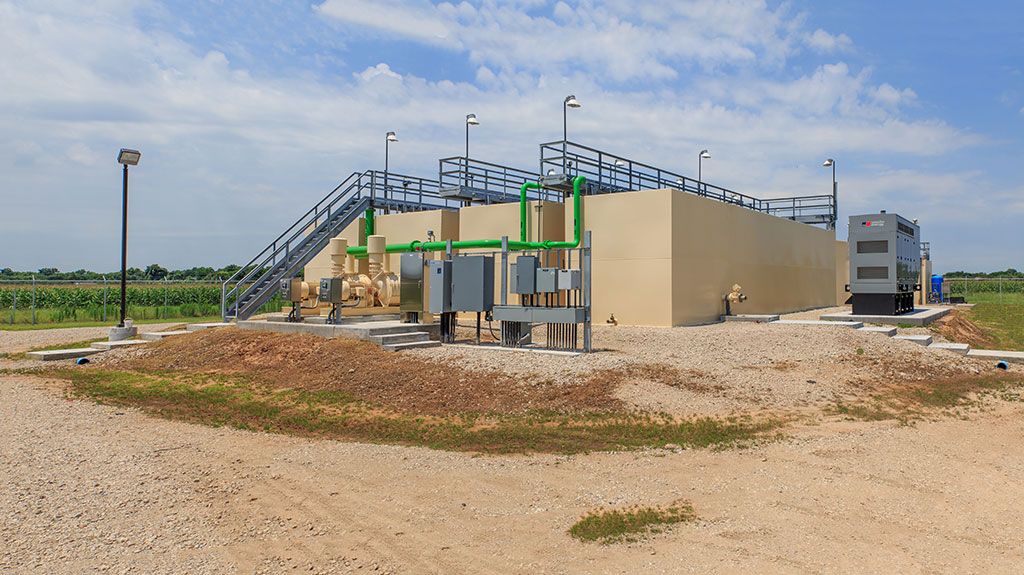What Is Decentralized Treatment?
Decentralized treatment refers to a localized approach for managing water and wastewater, where treatment solutions are implemented on-site or near the point of use. Unlike centralized systems, decentralized treatment offers flexibility, cost-effectiveness, and adaptability to diverse settings, providing efficient and tailored solutions for various industries and communities.
Benefits of Decentralized Treatment Plants
Cost-Effective Solutions
Centralization has remained the dominant model of water and wastewater treatment for more than a century. Large municipal and regional systems achieve cost efficiency through economies of scale, although CAPEX and the costs of long-term operations and maintenance can be crippling. In a growing number of scenarios, decentralized treatment is the better option. Decentralization works by siting scaled plants right where they are needed, which, among many benefits, slashes costs.


Pipe Cost: Appropriately scaled decentralized plants avoid the high initial cost of building pipelines, which typically cost more than the plants themselves in traditional, centralized projects. In addition to their high CAPEX, long pipelines are subject to long-term expenses for pumping, as well as maintaining and repairing pipes. With smaller, decentralized plants, these expenses don’t apply. Decentralized plants can also be easily commissioned where no other infrastructure is present — typically, only standard pipe gauges are required.
Reuse: As fresh drinking water becomes scarcer, it becomes ever more important not to waste it on applications for which treated, nonpotable effluent can be used. Reusing water cost-effectively increases the amount of water available for these applications. In most cases, local reuse is not viable if the treatment plant is distant because it would require a costly second pipeline to return the effluent. Decentralization makes recycled water available locally.
Environmental Impact
Transportation: Decentralized treatment frequently eliminates the need for tanker truck transportation of drinking water or sewage, reducing a system’s total carbon footprint and saving money on fossil fuel.
Unobtrusive Profile: Smaller decentralized systems have less impact on the natural environment. They take up less space and do not require long pipelines that disturb ecosystems and wildlife.
Reuse: Wastewater treatment can produce a high-quality effluent that can be released into the environment, supporting natural ecosystems. Tax incentives are often available. Effluent can also be reused for human activities, diminishing the amount of water that must be withdrawn from natural water resources.

Key Features of Decentralized Water and Wastewater Plants
Operational Efficiency
Energy Efficiency: Today’s advanced processes used in decentralized treatment rival energy efficiency at large plants. The membrane bioreactor (MBR), for instance, is extremely compact to fit more easily in smaller plants and produces unprecedented effluent quality for the energy cost.
Flexible Scaling: Smaller, modular decentralized plants deploy and can be installed quickly, increasing flexibility in the face of changing demand.
Modular Plant Design: Planning traditional assets can be difficult when future needs are unpredictable. Once the concrete sets, plants are difficult to revise. Modular plants, however, allow plants to scale up or down by simply adding or removing modules. One powerful strategy for modular treatment is phased installation, which allows developers to add capacity as new sections of their growing communities go on the market rather than paying upfront for the full capacity needed for the completed development.
Lease Plant Program: AUC maintains a fleet of decentralized water and wastewater treatment plants that can be delivered under timeline-based leases. The units deploy quickly as phased installations or temporary bypass plants, and everything inside the fence can be leased. Despite increased mobility, AUC modular plants are built to last, so all AUC leases have a purchase option.
Regulatory Compliance: In Texas, AUC has long experience working with the Texas Commission on Environmental Quality. Our experience helps clients maintain compliance in a shifting regulatory landscape and take advantage of available incentives. Where fast commissioning is important, AUC provides updated MBR-based plants that produce an exceptionally high effluent quality and generally navigate the TCEQ approval process in a quarter of the usual time of other plants. Learn more about our Houston water and wastewater treatment services.

FAQ About Decentralized Water and Wastewater Treatment
What is the difference between centralized and decentralized treatment?
In centralized water and wastewater treatment, a large area is served by a central plant via a network of collection or delivery pipelines. In decentralized treatment, smaller-scale plants are situated directly adjacent to the communities or facilities they serve, resulting in much less need for pipelines.
What types of industries benefit most from decentralized water treatment solutions?
In the context of industry, decentralized water treatment is generally called on-site treatment, and the list of industries that stand to benefit is extensive. Subdivisions, apartment buildings, office complexes, and other commercial ventures can cut their water and treatment costs with decentralization. Hotels can treat wastewater on-site for reuse in landscaping, vehicle washing, and other nonpotable applications for significant savings. Manufacturers can produce their own ultrapure water or recycle washing or other process water. Food and beverage operations can lower utility bills for their high-COD effluent. Any industry that faces tough regulatory standards can benefit from on-site treatment of various kinds of wastewater, such as produced water from the oil industry or paper and pulp manufacturing effluent.
How can decentralized wastewater treatment benefit rural communities?
Rural areas often lack centralized infrastructure, making it challenging to implement traditional water and wastewater treatment systems. Decentralized solutions allow communities to operate independently of extensive centralized networks, providing access to essential services without the need for costly infrastructure development.
What leasing options does AUC provide for water and wastewater treatment plants?
AUC leases are flexible and timeline-based to match need. When capacity upgrades are needed over a long timeline, leasing a plant that grows in phases relieves the pressure to pay for the final completed project’s predicted demand upfront in one lump sum. Because AUC plants are built to last, leases allow the client to watch a plant prove itself for extended terms before purchase. In situations where a plant is only needed temporarily, AUC leases allow plant construction, repairs, or upgrades to move forward with no break in service. Furthermore, we also offer direct sell and build-own-operate agreements.
What are the cost savings associated with decentralized water solutions?
The costs of pipeline construction are often underappreciated, sometimes accounting for 70% of total CAPEX. The energy costs of pumping to and from distant utilities also add up, and, as pipelines age, inevitable leaks begin to increase maintenance costs. Decentralization requires much less piping. Also, savings occur because smaller plants can be scaled to demand more accurately.
Can decentralized water treatment handle fluctuating water demands?
AUC decentralized plants now offer Phase 0, which allows plants to respond to variable demand. When flows are too low, plants normally cannot function, and waste must be pumped and hauled off-site for treatment until flows return to operational levels. AUC Phase 0 places partition walls inside tanks to generate more flow in a smaller space, saving pump-and-haul costs and allowing plants to function during times of low demand.

